As with any country in the world, there are both pros and cons of living in Mexico.
The pros of living in Mexico are seemingly endless, and in many cases well-known throughout the world: friendly people, great weather, beautiful landscapes, and delicious food.
Regarding the cons of living in Mexico, many are common to the developing world, such as environmental problems and overly bureaucratic government institutions.
There’s also one big negative: safety. Understanding this “big con” is crucial to successfully living in Mexico.
In this post, I’ll describe the pros and cons of living in Mexico to help you decide whether the benefits of living in the country outweigh the disadvantages.
I experienced all of these pros and cons of living in Mexico to varying degrees during the 10 years I spent there. I not only learned a lot during that time, but also had a lot of fun!
Let’s start with the 10 best things about living in Mexico.
1. Getting to Know Mexicans
It’s easy to make friends in Mexico: on the job, in school, or even at a favorite bar or restaurant. And in most cases, when you make a friend, you’ll eventually make at least five more, once you meet that person’s family and other friends.
Mexican people are warm and welcoming and always up for a good time.
Also, your new friend might become more than just a friend. Indeed, almost all of the foreigners I knew in Mexico were married to a Mexican.
2. Eating (and Discovering) Real Mexican Food
Burritos, nachos, and ground beef “hard” tacos may be tasty, but they’re not real Mexican food. Come to Mexico, and you’ll be able to experience one of the world’s finest cuisines in all its variety, vibrancy, and authenticity.
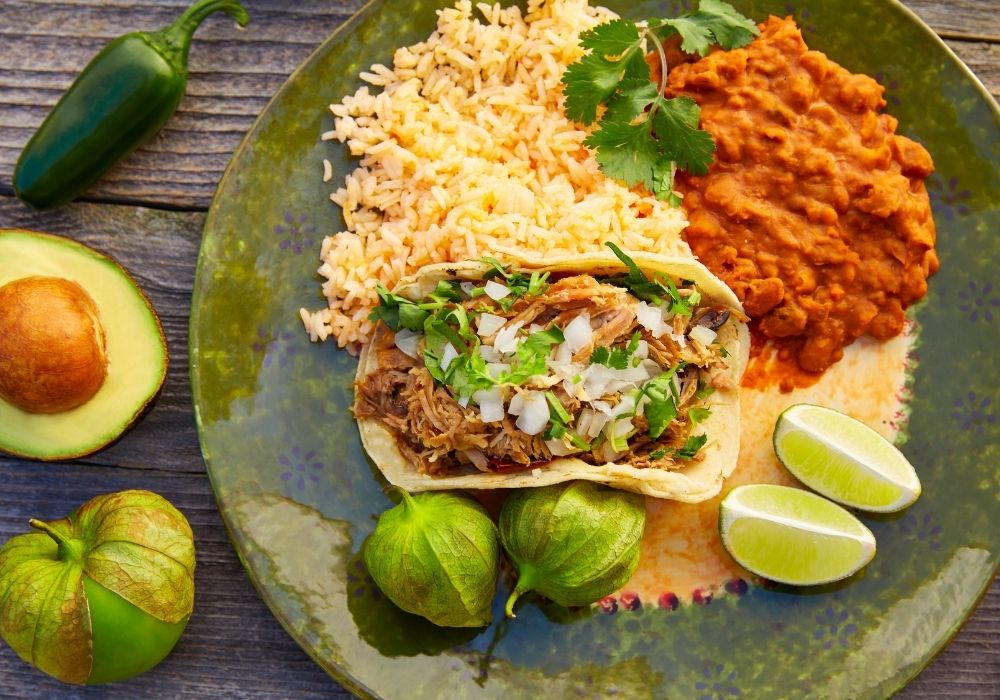
Ok, you say, but what about the excellent Mexican restaurant in my town, run by a real Mexican chef who uses all the right recipes and ingredients? I’m sure it’s delicious, but how are the prices?
Many times when I’ve had “real” Mexican food outside of Mexico, it’s been at a pricey restaurant. (Where I currently live in China, it’s downright expensive.)
In Mexico, the best food is at a small neighborhood spot, and for sure one of the greatest advantages of living in Mexico is having that small neighborhood spot just a few steps from your house.
3. Travel Opportunities
If you take a vacation to Mexico, you’ll most likely visit one of the country’s numerous top-tier destinations.
But when you live there, you’ll have access to the lesser known spots, such as the mountainside village of Taxco, the surrealistic garden Las Pozas, and the lake of seven colors, Lake Bacalar.
These are some of my favorite places in Mexico, but I’d never even heard of them before I moved there.
Wherever you live in Mexico, a beach is within driving distance. Chances are, so is a charming small town, a sophisticated urban area, and an ancient archeological site.
And not only are there countless interesting places to visit in Mexico, but getting to them is fairly easy.
The highways are well developed (if somewhat confusing), and a wide range of public transportation, from luxury buses to no-frills passenger vans, goes practically everywhere in the country.
Mexico is a large country, and fortunately it’s also easy, very quick, and relatively inexpensive to travel on Mexico’s domestic airlines, which include Interjet, Volaris, and VivaAerobus. Oftentimes, a one hour flight is cheaper than a 10 or more hour bus trip.
4. Amazing Weather
Much of Mexico, including most large cities, is located on a high plateau called the Central Mexican Plateau. This means that, even though the lowlands are steaming jungle or parched desert, the surrounding highlands are cool and pleasant year-round.
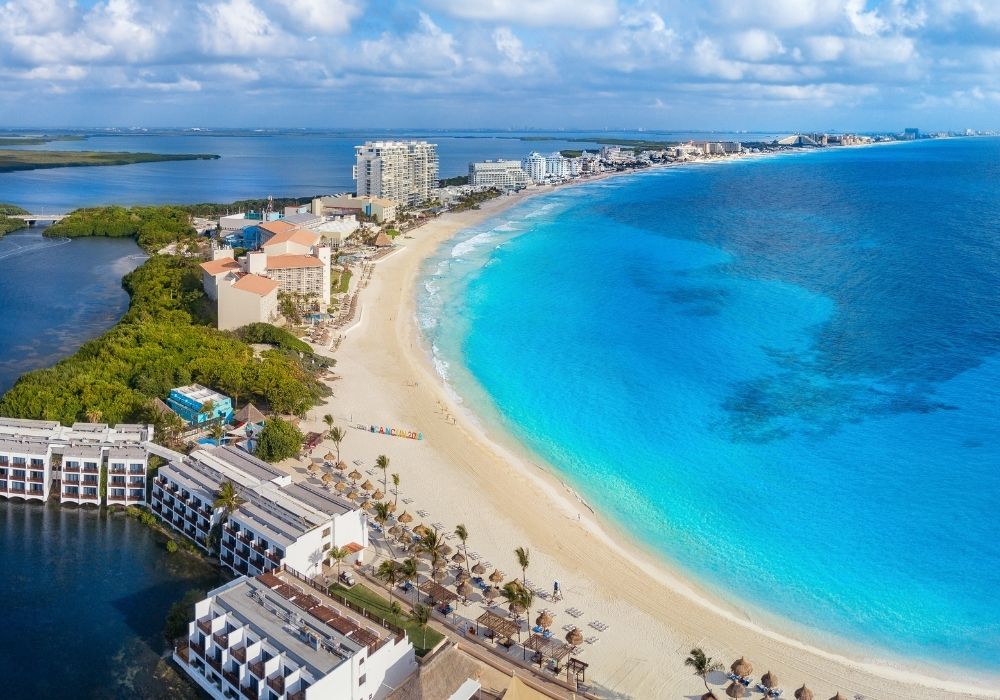
Cuernavaca, located about an hour south of Mexico City, is known as the City of the Eternal Spring, a nickname first given by German explorer and polymath Alexander von Humboldt in the 19th century.
It’s never too hot and never too cold, but warm and pleasant like spring at all times of the year.
Many other Mexican cities could claim this title, including expat favorites San Miguel de Allende and the small towns on Lake Chapala, near Guadalajara. The weather in these places is often a deciding factor for the expats who weighed the pros and cons of living in Mexico and ultimately chose to live there.
5. Close to Home
For being such an exotic destination (in the sense of having a unique, multifaceted culture), Mexico’s not so far away — assuming you’re American or Canadian, of course.
For example, Mexico City, as far south as it is, is closer to both New York City and San Francisco than they are to each other.
And although Mexico is definitely far from Europe, it’s comparable to other tropical destinations popular with Europeans.
From Amsterdam, which is a major hub for Mexico’s largest domestic airline, AeroMexico, it takes 12 hours to get to Mexico City, the same as Bangkok. And it takes 11 hours—one hour less—to get to Cancun.
6. Low Cost of Living
This advantage to living in Mexico comes with a corresponding con — low salaries — which I’ll discuss later in this article.
If you’re coming to retire, not work, then for you this will undoubtedly be one of the biggest pros of living in Mexico. Your savings will go a long way, especially for everyday expenses like fresh fruit and vegetables, transportation, and housing.
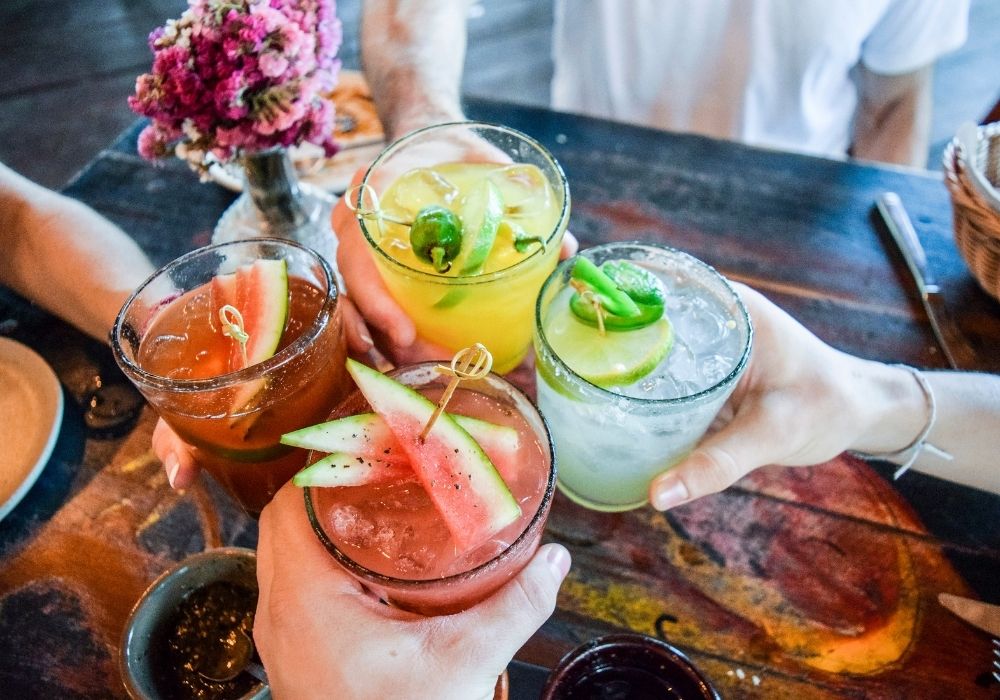
In 2020 (when I last lived in Mexico), a ride on the Mexico City metro cost 25 US cents. A large bag of fresh oranges cost between $1 and $2 USD. A huge taco dinner for two, complete with several rounds of beer, usually cost from $10 to $15 USD — almost never more than $20.
I’ve flown from Mexico City to Cancun for $25 USD, and I’ve stayed a few blocks from the beach in Playa del Carmen at a decent hotel for less than that a night.
These are only examples, and you can certainly spend more money on a trip to Mexico. But once you live there, you’ll learn the real price of things, along with where to get the best quality for the best value.
7. Excellent Music Scene
Again, this is only an example. If I were an art lover, I could easily have included “Excellent Art Scene.”
Every Mexican City has an art museum, many of them spectacular, and Mexico has produced a huge number of world-class, innovative artists. (I’m somewhat of an art lover, I suppose.)
I love music, however, so music is what I really know about. Mexico has music and then some.
Not only does Mexico have numerous homegrown musical styles, such as ranchera, banda, and norteño, but there’s also a thriving scene of many other kinds of music, including rock, ska, rap, and electronic.
What’s really cool about the domestic music scene is when Mexican bands mix popular international styles with Mexican and other Latin American genres.
This brought about the development of many Mexican styles too, such as when immigrant Germans brought accordions and polka music to the north of Mexico in the 19th century.
Noteworthy proponents of this are Café Tacuba, an alternative rock band (perhaps the best in Mexico) who also play boleros and norteños; Panteon Rococo, who inject ska with reggae, Latin funk and occasionally cumbia; and Nortec, a collective of DJs who mix in banda music (tubas, trumpets, clarinets, etc.) with their EDM.
If this all sounds a little overwhelming, you can see the best Mexican bands at one of the many festivals put on yearly. Vive Latino in Mexico City is the largest, and it’s where I’ve seen the three groups I mentioned above along with many more, including international acts.
Speaking of which, in Mexico, you can also see your favorite band on a world tour, and often for much cheaper than back home. I’ve seen artists such as the Rolling Stones, Roger Waters, and Metallica from way back in the cheap seats, sometimes for less than $20 USD.
And when I see an artist in a smaller theatre, like The National, LCD Soundsystem, or David Byrne, not only are the tickets less expensive than they are in other countries, but they may do something special, like singing a song in Spanish or adding a little Mexican flavor to their show.
For instance, during their concerts in Mexico, both Arcade Fire and Foster the People brought out mariachi groups to join them on a song.
8. Opportunities for Personal and Professional Growth
For me, learning Spanish was the most important. Learning to speak Spanish puts many opportunities within my reach: making friends, traveling, discovering new types of food, understanding the culture, and more.
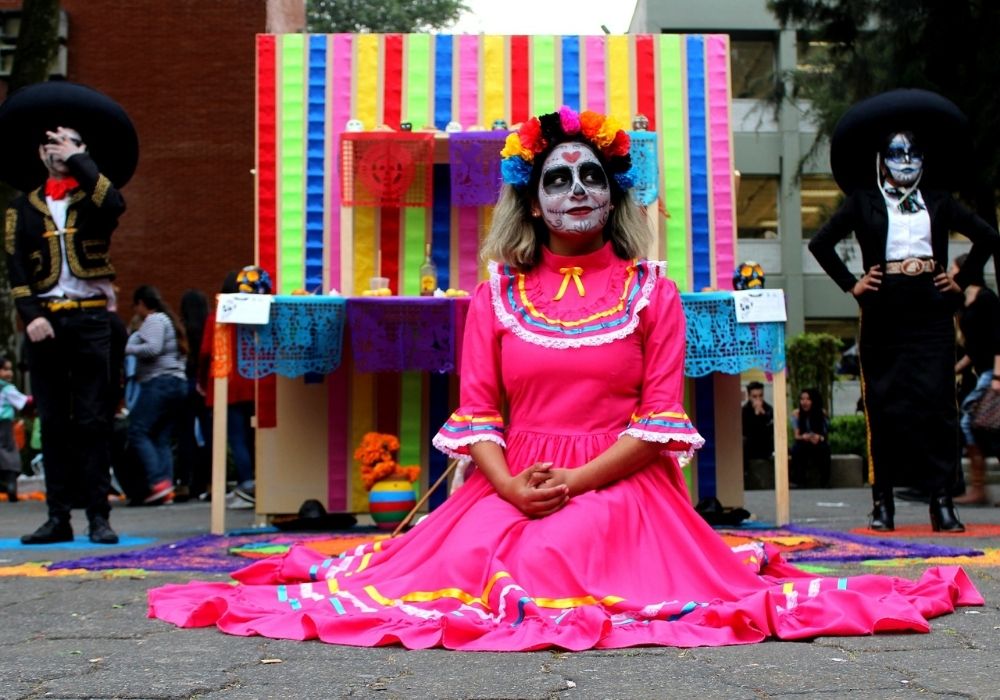
It also opened job opportunities that wouldn’t have been possible had I not learned it, such as translating.
It’s even useful for English teachers. Although the most effective classes are taught only in English, if you know Spanish, you’ll have better insight into your students’ mistakes, because they may be simply translating from the corresponding phrase in Spanish.
9. Understanding Important Social Issues
In the book Distant Neighbors, author Alan Riding states that no other two countries in the world have such a long border but with so little understanding.
Want to understand why people risk their lives to enter the U.S. by crossing a massive desert through dangerous drug gang territory?
Well, in Mexico, you can talk to them. You can ask about their experiences, hear their reasons and their stories, and then judge for yourself whether they’re bad people or not.
There are many more misunderstood aspects of Mexico, some of them as simple as a holiday, such as Cinco de Mayo. What is it really, and do Mexicans actually celebrate it? When living in Mexico, you will gain a greater understanding of the people and their culture.
10. There’s Always Something to Celebrate
If you look at the calendar, you’ll see that every day has a saint’s birthday.
Likewise, every town in Mexico, big and small, has a patron saint. Inevitably, their birthday will be a big several-day party in the town.
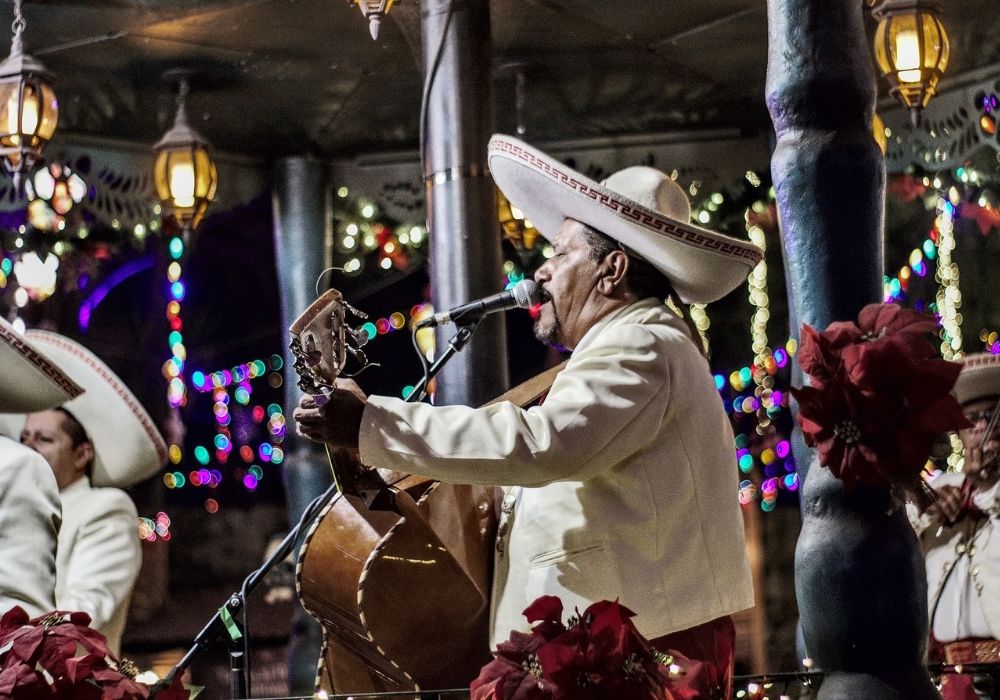
This is one of the pros and cons of living in Mexico. It’s a pro for people who like to party, and it’s a con for people who want to sleep, as well as all the dogs who are frightened by the fireworks.
Public celebrations aside, once you’ve lived in Mexico for a while and have made some friends, you’ll receive non-stop invitations to weddings, birthdays (especially quinceanera parties), baby showers, engagement parties — you name it, and sometimes by only casual acquaintances.
Accept them. You’re bound to have a good time, and it’s yet another opportunity to learn about Mexican culture.
Here are 5 Cons of Living in Mexico
As mentioned above, while there are many pros and cons of living in Mexico, several might not apply to everyone. There is a major con of living in Mexico, however, that everyone needs to be aware of, and that’s safety.
1. Safety
The issue of safety in Mexico is impossible to ignore when you’re considering the pros and cons of living in Mexico. It’s also not as straightforward as you may think.

Some people claim that Mexico is actually safer than many places in the U.S., and others believe that you’ll be kidnapped as soon as you step off the plane. Both are wrong.
The first thing to understand is that traveling in Mexico is very different from living in Mexico. Most tourist destinations in Mexico are safe, often precisely because of the tourism.
If the criminals robbed tourists, then the tourists would stop coming, and the whole economy of the area would suffer.
Regular, non-touristy places in Mexico, even small towns, have high amounts of crime, especially street muggings and home break-ins. Far less common are kidnappings and other more violent crimes, although they do happen.
This is true for both big cities and small towns.
If you live in Mexico for any extended period of time, you will almost certainly be the victim of crime. It’s unlikely that you’ll be kidnapped or caught in the crossfire of the drug war, but getting mugged or having your house broken into is quite likely.
Now, it’s true that these crimes are common in many parts of the world. What’s different about Mexico, and the second important thing to understand, is that when you’re the victim of a crime, there’s nothing you can do about it.
The police are useless at best, and at worst, they’re working with the same criminals who robbed you.
This is hard for some foreigners to understand. If you get robbed, you can’t go to the police. If your debit card gets stolen, the bank won’t reimburse the money that was taken out. If someone steals your car, your car is gone, period, in many cases even if you have insurance (see Con #3 below).
I must add that of course there are some good, honest police officers in Mexico. But they’re the exceptions, and they must surely have a really hard time of it.
2. Low Salaries
My first job interview in Mexico, at an international English school, was going well. The school seemed professional and well organized, and the interviewer clearly wanted to hire me.
Then I asked about pay. What he told me shocked me, and honestly still does.
The pay was about $3 USD an hour, before taxes, and it didn’t include the time I would have to spend getting to and from the places — factories and other companies — where I’d be teaching English classes.
I walked away from that interview thinking, what had I gotten myself into? I ended up getting a better job, and then a better one after that — but not too much better.
This isn’t only for English teachers. Salaries for recent graduates at large companies, even international ones like car companies, are often barely high enough to cover the costs of transportation.
And if you look at what the average waitress, grocery store clerk, or construction worker makes, you’ll be truly shocked.
So, keep that in mind if you plan on working while living in Mexico. Also, please keep it in mind the next time you’re in Mexico and want to comment on how cheap everything is. Sure, it’s cheap for you, but not for the people who work there.
3. Bureaucracy, Red Tape, and Mismanagement
The Mexican government is a bureaucratic nightmare, and you’ll be sucked into it right away when you decide to live in Mexico. This is the visa process.
The rules change often and are applied randomly depending on the official you speak to, who may be friendly and helpful or inexplicably grumpy.
Whenever I had to do some official paperwork in Mexico, I never knew if it would take 15 minutes, two hours, half a day — or end in total failure.
This doesn’t only apply to government institutions, by the way. Banking, for instance, is a similarly frustrating experience, marked by incompetence, apathy, and a lack of ethics.
Banks charge fees that make no sense at all, give conflicting information about the same topic, and engage in seriously unprofessional practices. For instance, once they have your phone number, you’ll be called almost daily with offers for loans and credit cards.
4. Environmental Problems
Streets and public parks in Mexico are covered with litter. In many neighborhoods, local residents pile their garbage up on a street corner or even the median of a highway.
It may take days, weeks, or never to get picked up. In the meantime, street dogs, passing cars, and heavy rains tear the garbage to pieces.
The one river in the city where I lived in Mexico was black with raw sewage and industrial waste. You could smell it from far away, and on really bad days, feel it burning your eyeballs. Many people lived within smelling distance of this river.
Environmental disasters are commonplace and readily visible in Mexico, which is disturbing to say the least.
Sometimes they’re caused by citizens, sometimes by industry, and sometimes by multinational corporations, as is the case with large-scale mining operations in the middle of nowhere and international hotels destroying large mangrove ecosystems for their expansions.
Some measures are in place to protect the environment, such as a vehicle emissions verification program. But then you hear stories of how the workers at the verification centers not only accept but actively solicit bribes, in return for giving the all-clear to heavily polluting vehicles, and the situation seems even more grim.
5. Cultural Issues
You may experience culture shock in Mexico, but fortunately it will be more confusing than actually shocking. Mexicans are overwhelmingly cheerful, easygoing, and tolerant, meaning that cultural misunderstandings are more often met with humor than anger or offense.
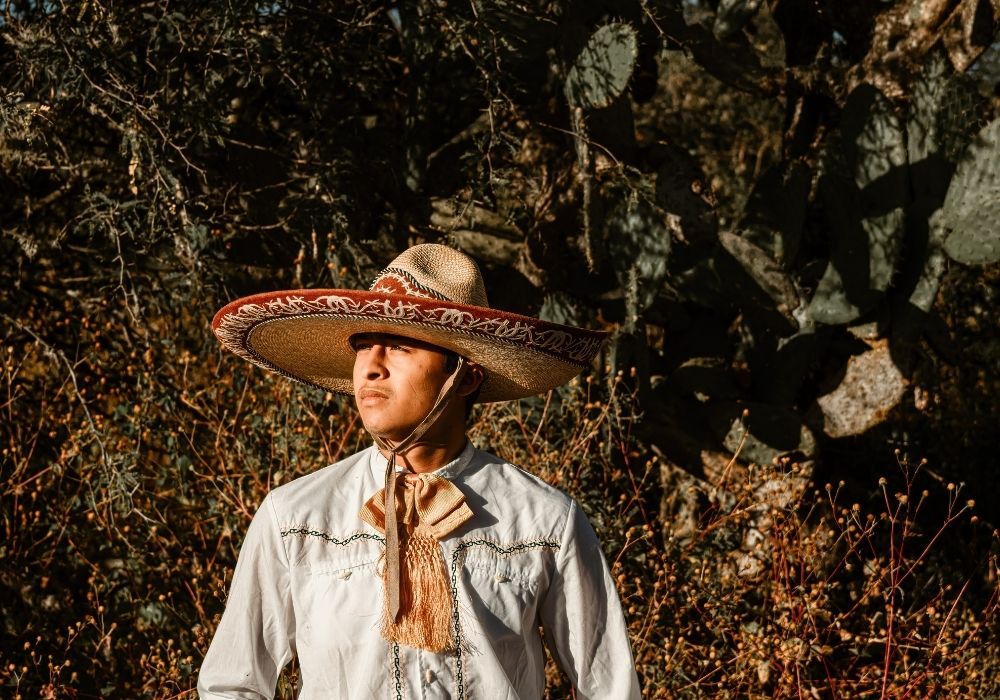
Lateness may be the first thing that expats notice. If you arrive on time for a work meeting, you may end up spending 30 minutes or more waiting for everyone else to show up. And, trust me, the one time you’re late will be the one time the meeting starts on time.
Social events are worse, and it’s normal for people to be several hours late for your dinner party. In fact, many people consider showing up on time to be rude. The hosts might not even be dressed yet.
Another thing to be aware of is that Mexicans are hesitant to complain, at least in person. (Take a look at any public forum, like on Facebook, and you’ll see that there’s no shortage of online complainers.)
If you’re subjected to hours of nonstop barking by a neighbor’s dog, and you go to the neighbor’s house to politely complain, guess what: Now you’re the rude one.
Somewhat similar to this is the aversion the average Mexican has to saying “no.” Flat-out refusing someone’s request is rarely done in Mexico, and is often considered extremely rude.
This can be as simple as turning down an offer of a cup of coffee or a meal. Why? Does he hate my cooking? Saying you’re simply not hungry is rarely taken at face value.
The Mexican solution is to simply say “yes,” but then never do what was promised. You can imagine all the trouble this leads to.
Conclusion
There you have it, the pros and cons of living in Mexico. Please keep in mind that there’s obviously much more to living in Mexico than the 15 items on the list above. Your experience will greatly depend on your own perception, actions, and where in the country you choose to live.
So, why live in Mexico? In my opinion, the pros of living in Mexico far outweigh the cons, although of course the pros and cons of living in Mexico depend on whoever is perceiving them.
The pros listed in this article are ones that I think could apply to everyone. My list of personal pros is much longer! If you decide to live in Mexico, yours will surely be longer as well.
The post 15 Pros and Cons of Living in Mexico appeared first on Goats On The Road.
![]()






Recent Comments